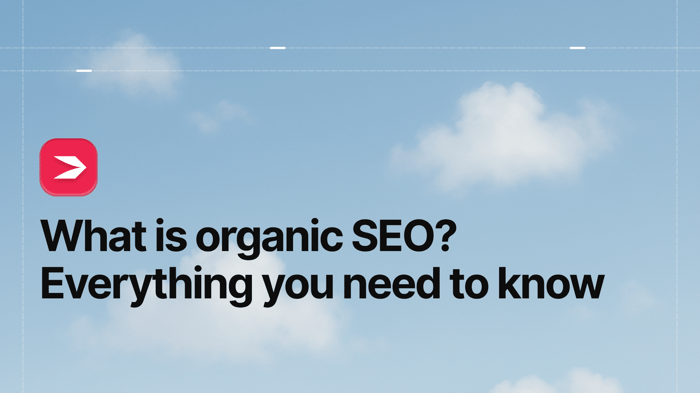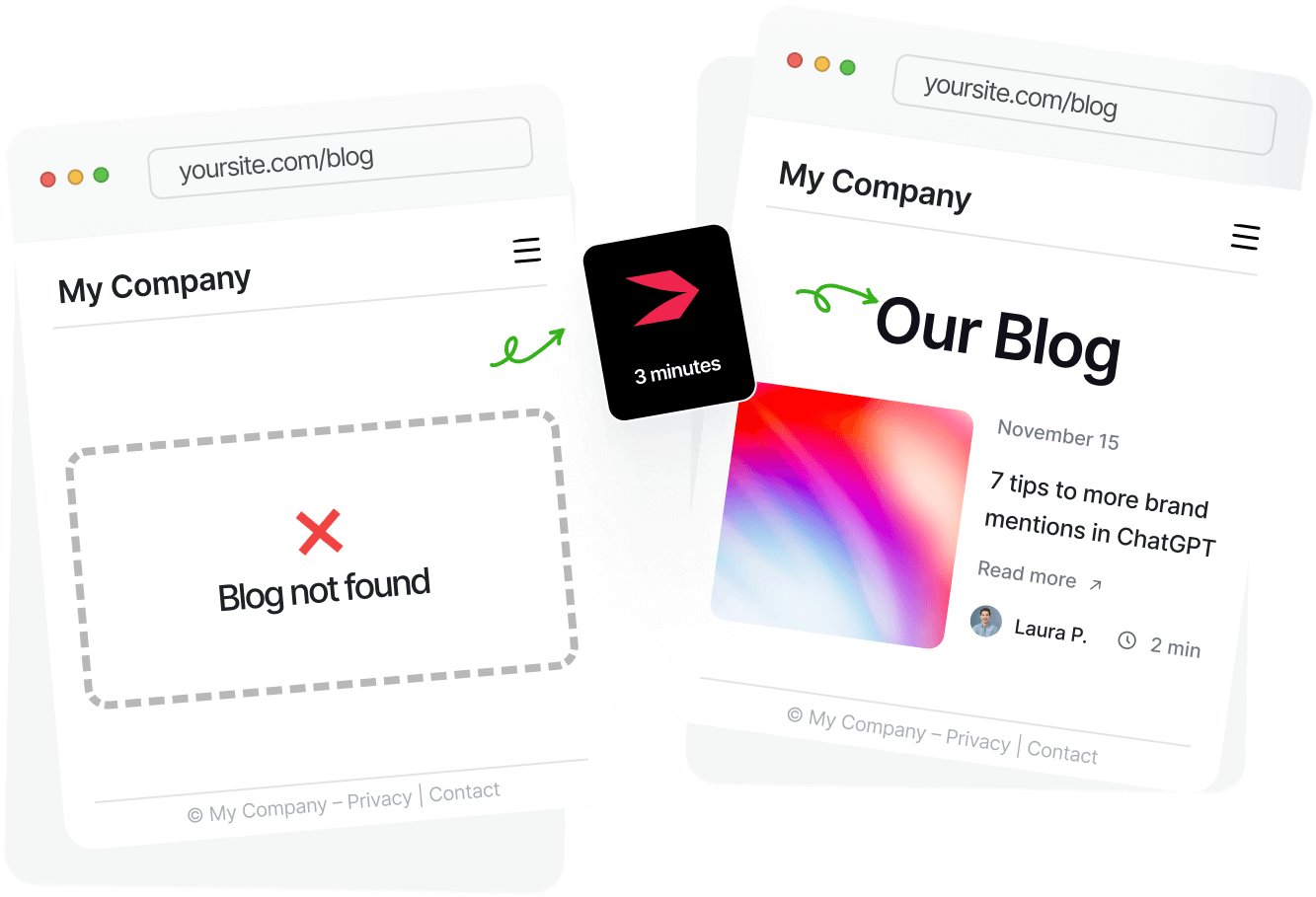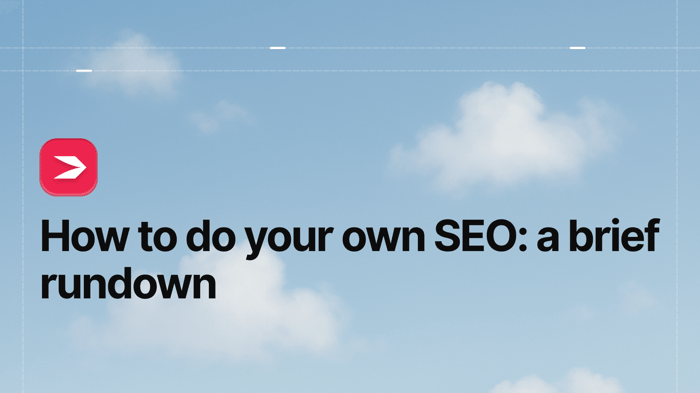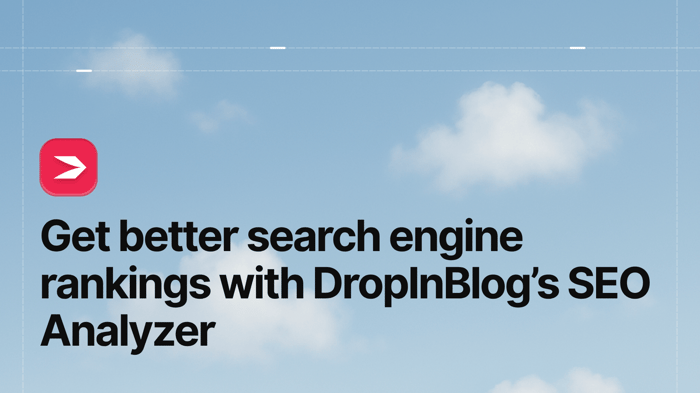You’ve probably heard the term organic SEO thrown around, especially if you’re publishing content or trying to grow your site’s visibility. But what exactly does it mean, and why does it matter?
In simple terms, organic SEO is the practice of optimizing your content and website to show up in search results without having to pay for ads. It’s about earning your spot in Google, not buying it.
Let’s break down how organic SEO works, and how tools like DropInBlog can help you publish content that ranks.
Table of Contents
How SEO Works
At its core, SEO is about making your site and content easy for search engines to understand and worth showing to users.
Search engines like Google use crawlers to scan your site and evaluate everything from page speed and structure to keyword usage and mobile friendliness. Based on this analysis, they decide how your content should rank in the results for specific queries.
To succeed with SEO, your content needs to:
Be relevant to what people are searching for
Demonstrate expertise and trustworthiness
Load quickly and work well across devices
Be structured in a way that’s easy to navigate
When you follow these principles, search engines reward you with visibility – and users reward you with clicks, engagement, and conversions.
Pages and content that are not SEO optimized are simply not as visible online. Around 96% of pages online get absolutely no organic traffic from Google. This number has slightly changed with the surge of AI and AI-optimized content, but there’s still a whole lot of wasted opportunity that you could harness if you use SEO.
Organic SEO or Paid SEO
There are two main ways to appear in search results: paying for it (ads), or earning it (organic SEO).
Here’s a simple breakdown of how they differ:
Organic SEO | Paid SEO (PPC) | |
|---|---|---|
Cost | Free traffic, but requires time | Costs money per click |
Longevity | Long-term results | Ends when the budget runs out |
Trust | Higher user trust and click-through rate | Often ignored as “ads” |
ROI | Increases over time | Immediate results, short-lived payoff |
Effort Required | Ongoing content and optimization | Set up campaigns, manage budget |
The process of SEO optimization is slow, and it can be equally as slow to yield results, so it may seem like the easy solution to opt for PPC. However, we assure you, there are some very valid reasons to bother with organic SEO.
Paid SEO can deliver traffic fast, but the benefits stop the moment you stop spending. Organic SEO builds momentum. It takes longer upfront, but it pays dividends over time.
Benefits of Organic SEO
Not surprisingly, organic SEO offers numerous benefits. Otherwise, what would be the point of spending all that time optimizing every inch of your content and site? Firstly, organic SEO often results in higher click-through rates as compared to paid advertisements.
It’s thought that this is because users have a tendency to trust organic search results more, as they are seen as being more credible. Google has a notoriously high standard for website quality, so if your website has a high ranking in Google search results, then it must have made the grade.
Cost Efficiency and Long-Term ROI
Organic SEO is highly cost-effective compared to paid search. While it does require some initial investment in time and money, the ongoing costs are lower, the ROI typically higher, and the benefits simply last longer.
Unlike ads, organic traffic doesn’t stop the moment you pause spending.
Because organic SEO focuses on optimizing a website's content and structure, it means the framework and processes are continuously working. This is precisely the reason behind the long-term success and sustainability of organic SEO. Once established, it can continue to generate organic traffic without high ongoing costs.
Organic search traffic is also high-intent traffic. Users arriving through organic results are actively searching for information, solutions, or answers – which means they’re more likely to engage, convert, or return. Over time, this leads to a stronger ROI than many short-term acquisition channels.
Ongoing Competitiveness in Search Results
Search engines frequently update algorithms, but a well-built organic SEO strategy is designed to adapt. By focusing on quality content, clear site structure, and user experience, your site becomes more resilient to algorithm changes.
Organic SEO also allows you to compete across different markets and intents. You can target:
Informational searches
Commercial research queries
Local search terms
Broader industry topics
This flexibility makes organic SEO a powerful driver of sustainable growth, even in competitive spaces.
Stronger User Experience and Relationship Building
Effective organic SEO improves more than rankings; it also improves how users experience your site. Optimized pages are easier to navigate, load faster, and work better on mobile devices. These improvements reduce bounce rates, increase time on site, and encourage repeat visits.
As your content continues to rank and attract organic traffic, your site’s authority grows. That authority compounds over time, strengthening your visibility across more keywords and reinforcing trust with both users and search engines. The result is not just more traffic, but a stronger, more credible online presence.
SEO Optimization Tools: DropInBlog
One of the best ways to get SEO benefits is through content marketing or blogging. However, the tools you use can have an impact on how effective your content marketing is.
Not all blogging platforms enable you to implement all the SEO changes you should make, and that’s why you need to do your research on the best blogging platforms.

DropInBlog offers a solution to many problems. It’s easy to integrate with a wide variety of platforms and website builders. Its WordPress-style editor is simple to navigate and familiar to most people.
However, it also includes a built-in SEO Analyzer tool. So, not only can you create and manage all your blog content from the DropInBlog dashboard, but you can also perfectly optimize the content. This SEO tool displays a helpful SEO score and recommendations for further content optimization to bring the score up.
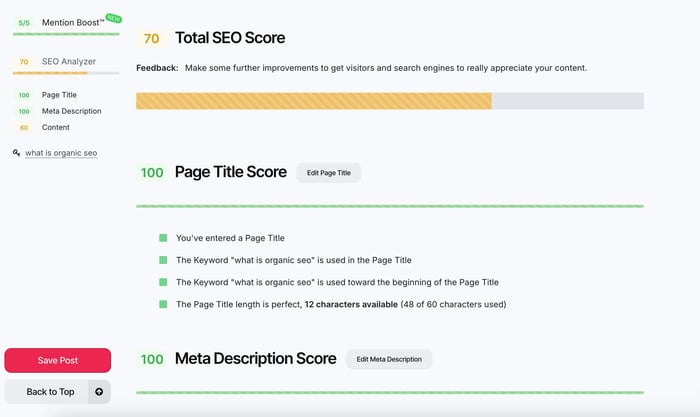
Organic SEO Fundamentals
A successful organic SEO strategy is built on a foundation of three core components: keyword research, on-page optimization, and technical SEO. These elements work together to make sure your content ranks for the right terms and stays competitive in search results over time.
1. Keyword Research
Effective SEO starts with understanding what your audience is searching for.
Keyword research helps you identify the exact terms and phrases people use when they’re looking for information, services, or products like yours. This allows you to create content that aligns with real search demand, not just what you think people are searching for.
2. On-Page SEO
On-page SEO actually starts with the quality of your content. Always aim to write for people – not algorithms. Craft high-quality, relevant, and engaging content that readers would find helpful. If your content includes specific information and dates, make sure you update those when required.
A well-optimized page includes:
Clear, descriptive headings that match search phrases
Readable paragraphs, bullet points, and visuals to improve usability
Internal links to relevant content across your site
Optimized meta title and meta description
Short, keyword-friendly URLs
You can use DropInBlog's SEO Analyzer to make sure your blog posts are always optimized properly.
3. Technical SEO and User Experience
Even the best content won’t rank if your site is slow, broken, or confusing to navigate. Technical SEO ensures your content can be crawled, indexed, and displayed correctly across all devices.
Key areas to focus on:
Mobile-friendliness: responsive layout, tappable buttons, no zoom required
Site speed: optimize images, use lightweight code
Clean URL structures: including the proper use of canonical tags
No broken links, redirects, or crawl errors
Structured data like FAQ or article schema to enhance how your pages appear in search
If you’re using DropInBlog, many of these boxes are already checked. It’s built to support fast, mobile-ready, schema-enhanced blog content, with no need for extra plugins or dev time.
If your page has a high bounce rate, this indicates users are leaving quickly without reading much or exploring your site – and that’s a problem. The vast majority of internet users today will browse the web from a mobile device, so make sure your pages are mobile-responsive and fast-loading to give the best possible user experience.
FAQs
What is the difference between organic SEO and paid SEO?
Organic SEO helps your website rank in search results naturally, without paying for placement. Paid SEO (like Google Ads) puts your content at the top through bidding, but the visibility stops once your budget runs out.
How long does organic SEO take to work?
Most content takes 3 to 6 months to see results from organic SEO, depending on keyword competition, domain strength, and how often you update your content.
Why is organic traffic important for a website?
Organic traffic is usually more targeted and engaged, since it comes from users actively searching for a solution. This often leads to higher conversion rates and lower customer acquisition costs over time.
Is organic SEO better than paid traffic?
Yes, if you’re focused on long-term growth. Organic SEO delivers consistent, high-intent traffic without the ongoing costs of advertising. However, paid traffic can provide faster results, especially for time-sensitive offers.
Can I do organic SEO without technical knowledge?
Absolutely. Many organic SEO improvements involve content and structure, like choosing the right keywords, writing strong meta tags, and improving readability. Tools like DropInBlog handle the technical side (like schema markup and clean URLs) for you.
Final Thoughts
Organic SEO gives you more than just free traffic. It builds long-term visibility, trust, and relevance. When you publish content that’s well-structured, helpful, and aligned with how people search, you create real momentum that compounds over time.
Of course, getting the technical details right can be a challenge, especially if your platform limits your ability to customize SEO elements.
That’s where DropInBlog comes in. It gives you full control over your blog’s SEO: editable meta fields, clean URLs, automatic schema, and a built-in SEO Analyzer, all in a clean, fast-loading interface.
If you’re ready to grow with organic SEO, you can try DropInBlog for free and see how easy it is to publish content that ranks.
